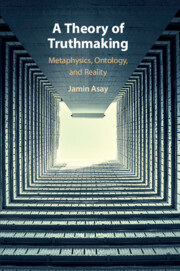Chapter 9 - Nominalism
from Part III - Metaphysics
Published online by Cambridge University Press: 18 April 2020
Summary
A familiar view is that truthmaking is in tension with nominalism: to accept an ontology of truthmakers is to reject the austere metaphysical worldview of the nominalist. However, there is nothing inherently antinominalist in the idea of truthmaking. As has been argued, the notion of truthmaking is ontologically neutral, and so in principle compatible with any ontological worldview. Nevertheless, leading advocates of truthmaking (most notably Armstrong) have put their theories to the task of arguing against nominalism. This book is interested in exploring how strong a truthmaking-based defense the nominalist can wield. This chapter briefly presents an overview of the various theoretical options available when it comes to realism and nominalism in the context of truthmaking. In so doing, it introduces a particular distinction between hard road and easy road forms of nominalism. It aims to give the best possible defense of these different forms of nominalism, but raise its own own objections against them. Ultimately, it is suggested that truthmaker theory is best served by a realist commitment to properties, whether in terms of universals or tropes.
Keywords
- Type
- Chapter
- Information
- A Theory of TruthmakingMetaphysics, Ontology, and Reality, pp. 175 - 199Publisher: Cambridge University PressPrint publication year: 2020

